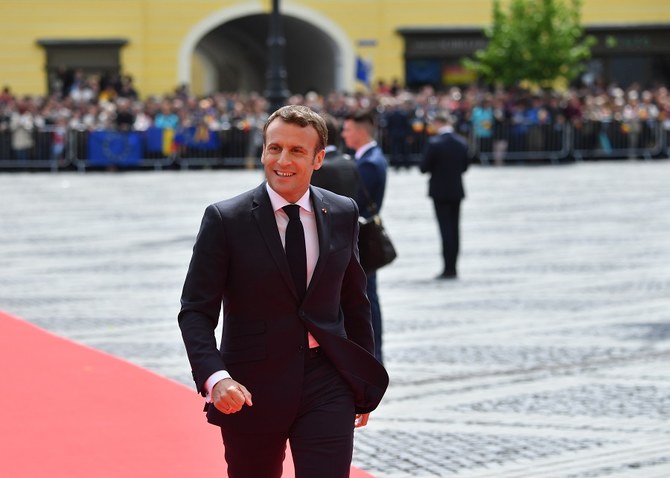Iran wants to bring its nuclear deal with world powers “back on track” after the US unilateral withdrawal, the spokesman of the Atomic Energy Organization of Iran said on Thursday, a day after Tehran said it was scaling back curbs to its nuclear program.
“Our goal is to strengthen the JCPOA (the acronym for the nuclear agreement) and bring it back on track,” Behrouz Kamalvandi was quoted as saying by IRNA.
His comments came a day after concerns were raised that Iran was about to default on at least parts of the nuclear deal.
French President Emmanuel Macron later said the Iran nuclear deal must be saved and that the accord’s signatories should do all they can to ensure that the Islamic Republic respects it.
Macron told reporters on Thursday that “Iran must remain in this agreement and we must do everything we can to ensure that it stays in.”
Speaking ahead of an EU summit in Romania, Macron lauded the 2015 deal curbing Iran’s nuclear ambitions as “a good agreement."
But he said it should be completed with other pacts governing Iran’s missile development and its potentially destabilizing role in the Middle East.
Amid heated rhetoric from Tehran and Washington in recent days, Macron urged the signatories not to “get caught up in any escalation” and to “jointly watch over our collective security.”
Meanwhile the European Union on Thursday urged Iran to respect the international agreement curbing the Islamic Republic’s nuclear ambitions, saying it aims to continue trading with the country despite US sanctions.
The EU and major European powers — Britain, France and Germany — also said that they “note with great concern the statement made by Iran concerning its commitments” to the nuclear deal.
The joint statement came as the bloc struggles to preserve the 2015 nuclear deal with Iran, a day after a new deadline from Tehran on finding a solution to make up for last year’s unilateral US withdrawal from the accord and re-imposed US sanctions on Iran.
“We remain fully committed to the preservation and full implementation” of the deal, endorsed by the UN Security Council, said the EU statement.
The Trump administration pulled America out of the 2015 deal a year ago, saying it does nothing to stop Iran from developing missiles or destabilizing the Middle East. The Europeans insist that the pact is an important pillar of regional and global security and was never meant to address those other issues.
Iranian President Hassan Rouhani said in a televised address Wednesday that signatories to the deal now have 60 days to come up with a plan to shield his country — already laboring under economic hardship — from the sanctions imposed by President Donald Trump.
The EU powers say they “regret the re-imposition of sanctions” by the US and remain “determined to continue pursuing efforts to enable the continuation of legitimate trade with Iran.”
The Europeans have set up a complicated barter-type system to skirt direct financial transactions with Iran and so evade possible US sanctions. The workaround, dubbed INSTEX, is not yet operational as Iran has not completed its part of the scheme.
The bloc said it plans to push ahead with "the operationalization of the special purpose vehicle 'INSTEX'."
The EU has also introduced a so-called “blocking statute” protecting European companies from the effects of US sanctions, but many international corporations do more business in the United States than in Iran and have already severed ties there rather than risk running afoul of Washington.
In a message implicitly directed at the US administration, the EU powers said “we call on countries not party to the (deal) to refrain from taking any actions that impede the remaining parties’ ability to fully perform their commitments.”
Despite the heated rhetoric, the Europeans insist that only the International Atomic Energy Agency can judge whether Iran remains in compliance with the nuclear agreement. More than a dozen reports have shown that Tehran is respecting it so far. A new report is due at the end of May.


























